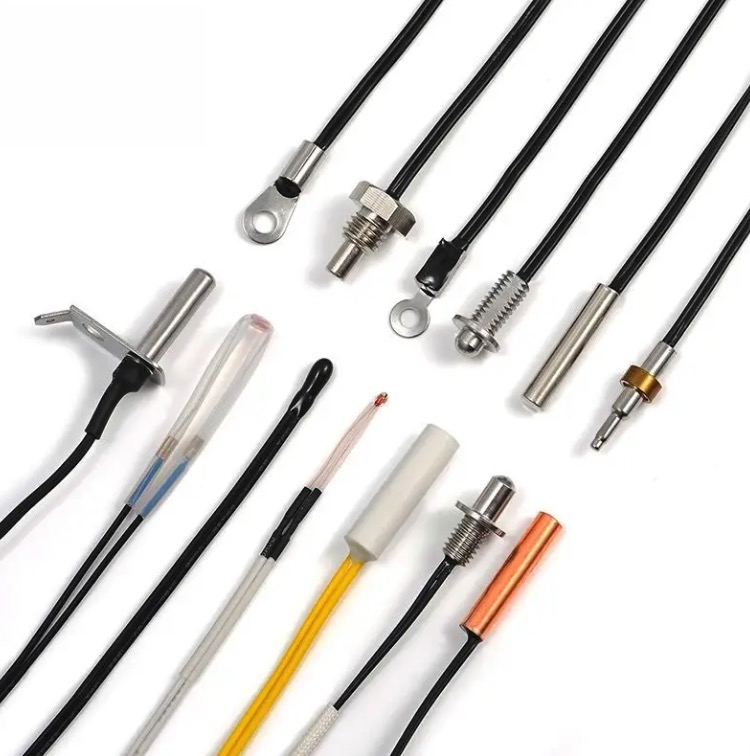Magnetic Temperature Gauge: Tracking Heat with Precision
Introduction:
In the world of temperature measurement, accuracy and precision are crucial. When it comes to monitoring heat, a magnetic temperature gauge emerges as a reliable solution. This article delves into the intricacies of magnetic temperature gauges, highlighting their features, applications, and benefits.
Table of Contents:
1. What is a Magnetic Temperature Gauge?
2. How Does a Magnetic Temperature Gauge Work?
3. Applications of Magnetic Temperature Gauges
4. Advantages of Using Magnetic Temperature Gauges
5. Factors to Consider when Choosing a Magnetic Temperature Gauge
6. Conclusion
1. What is a Magnetic Temperature Gauge?
A magnetic temperature gauge is an innovative device designed to measure and monitor temperatures in various settings. Unlike traditional thermometers, which rely on physical contact, these gauges employ magnetic principles to provide accurate temperature readings. With their non-intrusive nature, magnetic temperature gauges offer a versatile solution for temperature monitoring in challenging environments.
2. How Does a Magnetic Temperature Gauge Work?
The working principle behind a magnetic temperature gauge lies in the use of magnets and temperature-sensitive materials. Inside the gauge, a magnet interacts with a temperature-responsive material, causing it to undergo specific changes. These changes can then be measured and converted into temperature readings. By eliminating the need for direct contact with the measured object, magnetic temperature gauges ensure minimal interference and reliable measurements.
3. Applications of Magnetic Temperature Gauges
Magnetic temperature gauges find applications in a wide range of industries. Some notable areas where these gauges prove invaluable include:
– Industrial Processes: Magnetic gauges are used to monitor temperatures in manufacturing plants, refineries, and chemical processing facilities. Their ability to withstand high-pressure environments and resistance to corrosion make them ideal for these settings.
– HVAC Systems: Heating, ventilation, and air conditioning systems require precise temperature control. Magnetic temperature gauges help monitor and regulate temperatures, ensuring optimal performance and energy efficiency.
– Automotive Sector: From engines to exhaust systems, magnetic temperature gauges play a vital role in monitoring temperatures in the automotive industry. Accurate temperature measurements aid in preventing engine overheating and other potential issues.
4. Advantages of Using Magnetic Temperature Gauges
When compared to traditional temperature measurement methods, magnetic temperature gauges offer several advantages, including:
– Non-Intrusive Monitoring: As magnetic temperature gauges do not require physical contact with the object being measured, they eliminate the risk of contamination or damage to sensitive materials.
– Wide Temperature Range: Magnetic gauges can measure temperatures ranging from extremely low to ultra-high, making them suitable for diverse applications.
– Durability: Designed with robust materials, magnetic temperature gauges are built to withstand harsh environmental conditions, ensuring long-term reliability.
– Easy Installation: These gauges feature user-friendly installation processes, enabling quick and hassle-free integration into existing systems.
5. Factors to Consider when Choosing a Magnetic Temperature Gauge
To select the most suitable magnetic temperature gauge for your needs, consider the following factors:
– Temperature Range: Ensure that the gauge’s temperature range aligns with your application requirements.
– Accuracy and Precision: Look for gauges with high accuracy and precision levels to obtain reliable temperature readings.
– Environmental Considerations: Assess the gauge’s resistance to chemicals, moisture, and vibration to guarantee optimal performance in the intended environment.
– Calibration and Maintenance: Check if the gauge requires periodic calibration and maintenance, as these factors can affect its long-term accuracy.
6. Conclusion
In conclusion, a magnetic temperature gauge represents an advanced solution for precise temperature measurement. Its non-intrusive nature, wide applications, and numerous advantages make it an ideal choice across various industries. By harnessing the power of magnets and temperature-sensitive materials, magnetic temperature gauges ensure accurate and reliable heat monitoring. When selecting a gauge, considering factors such as temperature range, accuracy, environmental suitability, and maintenance requirements is essential. Embrace the power of magnetic temperature gauges and unlock the potential for enhanced temperature tracking in your applications.
Remember, when it comes to temperature monitoring, nothing beats the precision and reliability of a magnetic temperature gauge.
Understanding NTC Temperature Sensor Craftsmanship and Reliability in Air Conditioning Systems
In modern HVAC systems, temperature sensors play a critical role in ensuring energy efficiency, performance stability, and user comfort. Among them, NTC (Negative Temperature Coefficient) thermistors are the most widely




